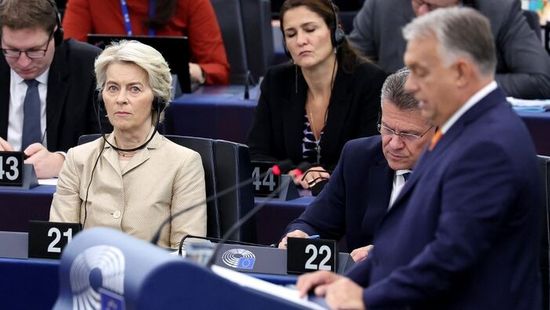Dokumentumok bizonyítják: Brüsszelben arra készülnek, hogy a Fidesz nyeri meg a választást

Az elemző szerint ráadásul az is egyértelmű, miért nem lenne rájuk szükség, ha Magyar Péteréket tartanák esélyesnek.

With Indonesia, Mr. Obama faces a similarly tricky challenge. Well over 200 million of Indonesia’s 240 million inhabitants are Muslims.
„The 20th century saw great, land-centric Army deployments to Europe. George W. Bush unwittingly continued this tendency with great, land-centric deployments to the Middle East, where we became ensnared in intra-Islamic conflict. As President Obama develops his grand strategy for Eurasia, the great step forward would be creating a smaller footprint on land and a bigger one at sea. Navies are very conducive to projecting soft power: they make port visits and guard the global commons, whereas armies invade.
Easing India’s fears about Chinese-built ports in the Indian Ocean as well as Indonesia and its neighbors’ worries about Chinese designs in the South China Sea and Japan and South Korea’s about China’s goal of dominating the islands of the Western Pacific is in each case a matter of warships, not ground troops.
As the Yale geostrategist Nicholas J. Spykman wrote in 1942, because America had no rivals in the Western Hemisphere, it had the »power to spare for activities outside the New World«, like determining the balance of power in the Eastern Hemisphere. And in Eurasia, Spykman went on, the maritime rimland is pivotal, because it is essential to the supercontinent’s contact with the outside world. Let’s hope that President Obama’s visits to key states of coastal Asia will prove Spykman’s theory correct.”